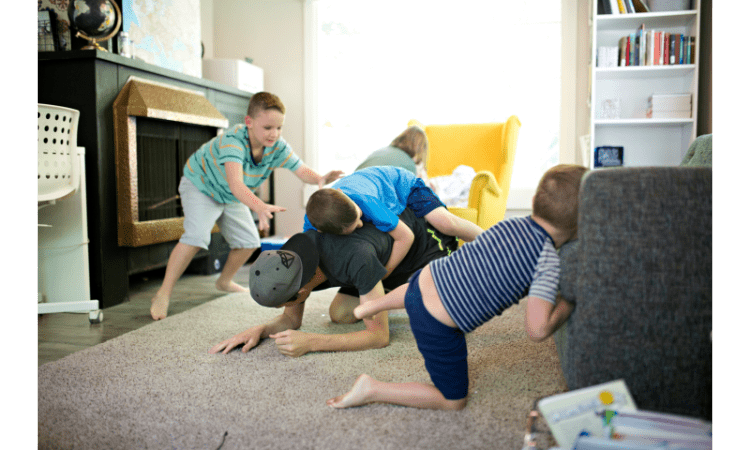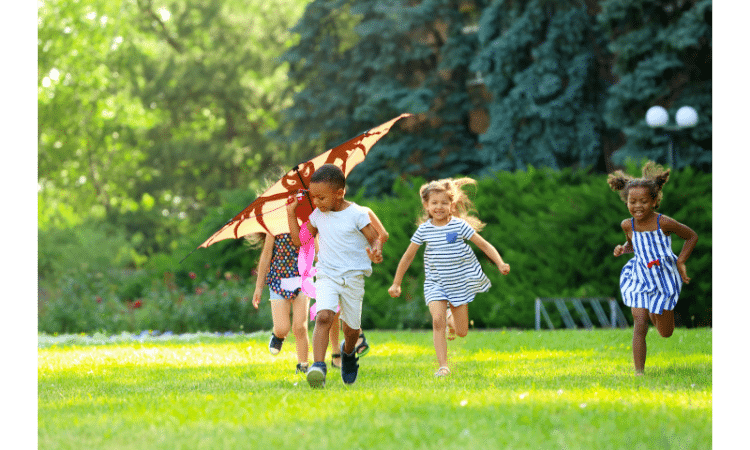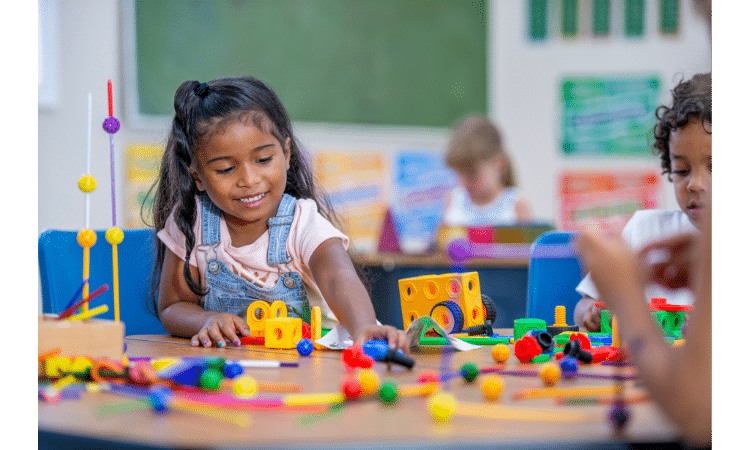
Rough play is a form of physical play that involves aggression, physical force, and high energy. While some people believe that rough play can be harmful to children, research shows that it can actually be beneficial. Rough play is a crucial part of childhood development. It allows children to release energy and practice physical skills, as well as develop social skills and problem-solving abilities. It also helps them learn to control their emotions, which is important for building mental health. In this article, we’ll take a look at some of the ways in which children’s rough play can help them develop emotionally and physically.
What is rough play

Rough play is a form of physical activity that involves contact and provides opportunities for learning and skill development. Children engage in rough play because they are naturally curious and want to explore the world around them. Rough play also helps children develop social skills, such as sharing and cooperation, which are important for successful relationships later in life. It also helps them develop their senses of balance and spatial awareness, which are essential for later learning in school classrooms.
Why it’s important for kids
Rough play is important for kids because it teaches them how to interact with others in a safe way. It can also help them learn about their own boundaries, as well as the boundaries of others.
Rough play helps children learn how to express themselves through movement and gesture, which is an important part of emotional development. It also helps them develop social skills like sharing and cooperation.
Finally, rough play is crucial for both physical and mental health. It can help kids build strength, coordination, and endurance—all of which are important for their physical health and well-being.
Also Read: 10 Sports Game for Kids
Benefits of engaging in rough play
Promotes physical activity

Rough play is a great way to get children moving. It can be hard for little ones to wriggle their bodies into the positions and movements that promote physical activity, but rough-and-tumble games give them the chance to work different muscles and explore the world in new ways. When kids are engaged in rough play, they’re also developing social skills and learning how to interact with others in a way that feels safe for everyone involved. Rough play encourages children to move their bodies in ways they otherwise might not—like running around or climbing on things—and it also helps them learn how to control their movements.
Regulates cognition and social behavior

Rough play is a great way for kids to regulate their cognition and social behavior. When your kid is playing in a rough manner, it can help them develop the skills they need to self-regulate. Rough play for kids is beneficial for three main reasons: it regulates cognition and social behavior, it promotes emotional development, and it improves motor skills.
Rough play helps regulate cognition and social behavior in children by allowing them to practice their physical skills in a safe environment. For example, when a child learns to ride a bike or play football, they are learning how to control themselves while also working with other people who are doing the same thing. This type of practice helps them develop the ability to be aware of their surroundings while also being able to focus on what they are doing at any given moment.
Rough play also helps children develop emotional intelligence through the process of negotiating with others about what kind of rules should apply during different activities. For example, if one child wants something more than another child does but both want something different than either parent does, then each person will have to negotiate with one another until they come to an agreement that everyone can live with while still being happy at the end of the day. This type of negotiation helps children learn how to compromise so that everyone gets what they need out of life while still being able to get along with each other.
Friendly interaction

When kids engage in rough play, they’re often trying to get a reaction out of their peers. This can help them learn to interact with others in a variety of situations, including ones that aren’t as easy-going as they want them to be. By learning how to navigate difficult social situations through rough play, kids will be better equipped for future interactions where they may need to assert themselves or negotiate with others.
Friendly interaction is the main benefit of kids engaging in rough play. Children who are exposed to a range of different situations and experiences as they grow up are more likely to be well-rounded, confident, and able to handle unexpected events as adults. When children get involved in activities that require them to collaborate, strategize, and problem-solve with their peers, they’re also building skills that will serve them well later on in life.
Encourages outdoor play

One of the many benefits of rough play is that it encourages outdoor play. Rough play can be done in an empty lot or park, or even in a backyard. Playing outside allows kids to get some fresh air and sunshine while they are having fun. It also helps them develop their muscles and build their endurance.
Another benefit of rough play is that it teaches children how to interact with their peers. Rough play is a great way to get the blood flowing and get kids moving, which helps them burn off energy and stay healthy. When kids engage in rough play, they learn how to communicate with one another and resolve conflicts peacefully. They also learn how to be good sports when someone wins or loses a game or competition. Kids who engage in rough play tend to be more confident, independent, and adventurous than those who don’t. They’re also better at problem-solving, which will help them navigate life’s difficulties as they grow up.
Encourages experimentation

Rough play encourages experimentation and helps children learn how to deal with negative emotions.
Rough play is fun and safe, and it allows kids to practice strategies for dealing with strong feelings. Children can experiment with how they react when they feel angry or frustrated, and they can learn how to manage these emotions through play.
When kids are engaged in rough play, they are learning how to handle conflict in a healthy way. They’re also learning about their own personal boundaries—what’s acceptable and what’s not—and what happens when those boundaries are violated by another person (or animal). Rough play can encourage children to experiment because it allows them to try new things and see what happens. For example, if a child is playing on a seesaw with a friend and they want to take turns being on top, they can try this out during rough play with their friends. Children also learn how to navigate conflict during rough play. This helps them practice problem-solving skills that they can later use in other areas of their lives.
This type of physical play also helps children develop an understanding of their own bodies limitations. For example, if someone hits them too hard during a game of dodgeball or tackles them during tackle football, they’ll learn that this kind of behavior isn’t okay because it hurts (or worse).
Also Read: How to See Things From Your Kid’s Point of View
Conclusion
In conclusion, rough play is an essential part of a child’s development. It helps them learn how to manage their impulses and develop the ability to express themselves in healthy ways. It also helps them learn how to handle conflict in a healthy way and fosters trust between children and their peers.
In addition, rough play can help kids understand their own limits as well as the boundaries of others, which can help them navigate social situations better in the future. In fact, studies have shown that engaging in some forms of physical activity can help improve memory, concentration, mood, and self-esteem.











